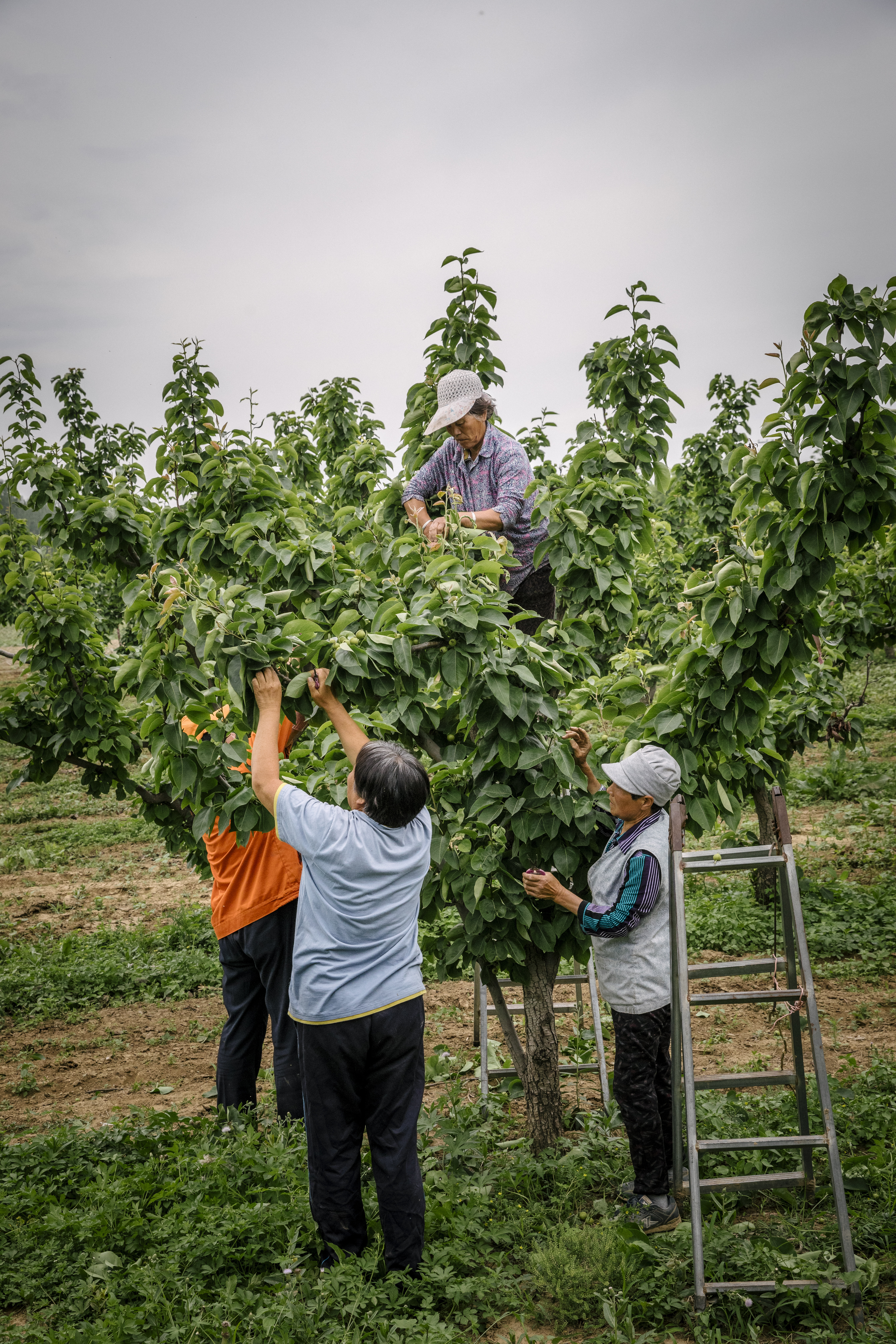Measures put in place to control the spread of the COVID-19 virus could lead to a massive disruption to food supplies. Following a Call to Action for World Leaders, the FOLU community is working to protect food supplies, farmers, others involved in the production of food and vulnerable communities, as well as support a sustainable recovery to grow back better. We are sharing a collection of stories from communities around the world who had put in place sustainable farming and food practices before the pandemic occurred. These are the kind of solutions that could now play a role in a resilient recovery.
Sharing harvest and tables: a community led farming movement in China
A 54-acre (22 ha) woman-led organic farm in the Tongzhou and Shunyi districts of Beijing has been at the helm of a local food movement for more than eight years. Shared Harvest, run by Dr Shi Yan and her husband Dr Cheng Cunwang, is inspiring a local, fair and nourishing food economy – welcoming farmers and interested parties to learn about better farming practices and bringing consumers into her world.
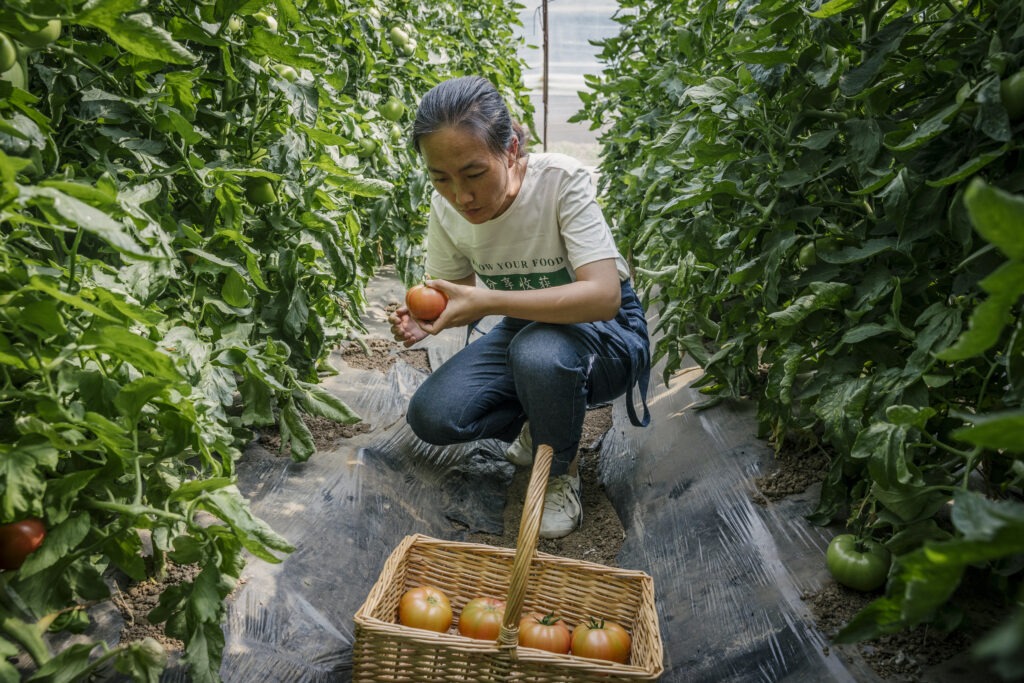
Dr Shi Yan, one of the co-founders of Shared Harvest / Ian Teh for Panos Pictures/ Food and Land Use Coalition
Many people do not know where their food comes from directly. Yan is changing this for the citizens of Beijing. In 2012, she founded Shared Harvest, one of the first Community Supported Agriculture (CSA) farms in China. Now, there are reputed to be around 500 CSA farms across the country.
CSA farms have been in existence since the 1960s in parts of the world, often begun in response to food safety and environmental concerns. The model connects producers to consumers who can subscribe to a particular farm’s harvest and share in the risks and rewards of producing food.
Since Shared Harvest sowed its first seeds, it has been much more than a farm – it is dedicated to and led by its community.
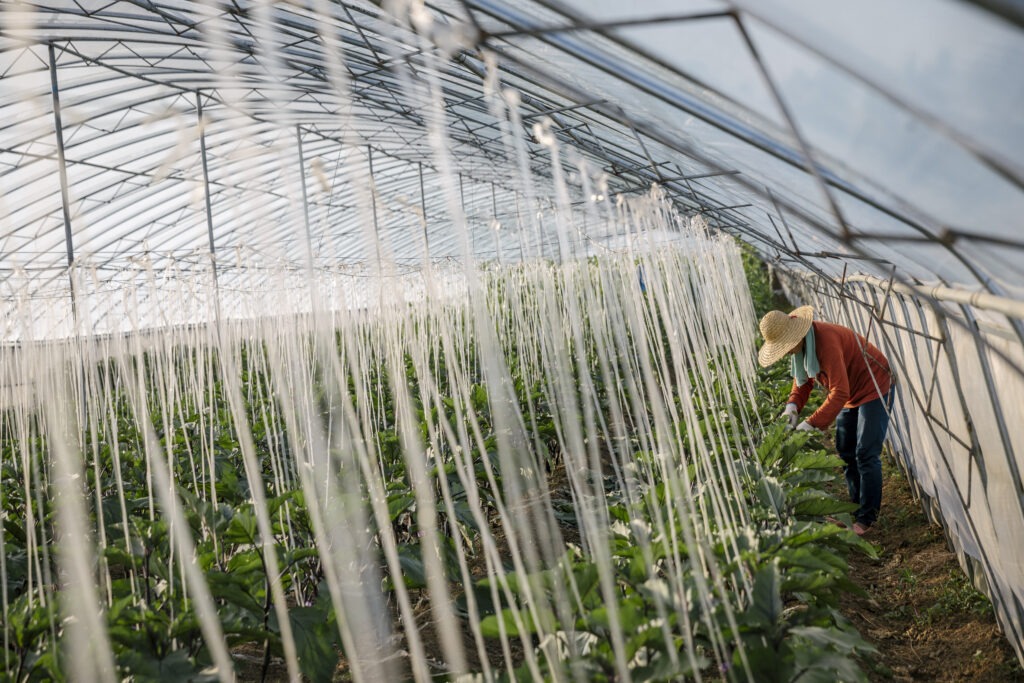
Farmer tending to plants in a greenhouse in Shared Harvest farm/ Ian Teh for Panos Pictures/ Food and Land Use Coalition
A network of greenhouses and fields filled with fruits, vegetables and livestock entwine, and among this a community of farmers, interns and volunteers work together to prune pear trees and collect ripe tomatoes that will shortly be consumed.
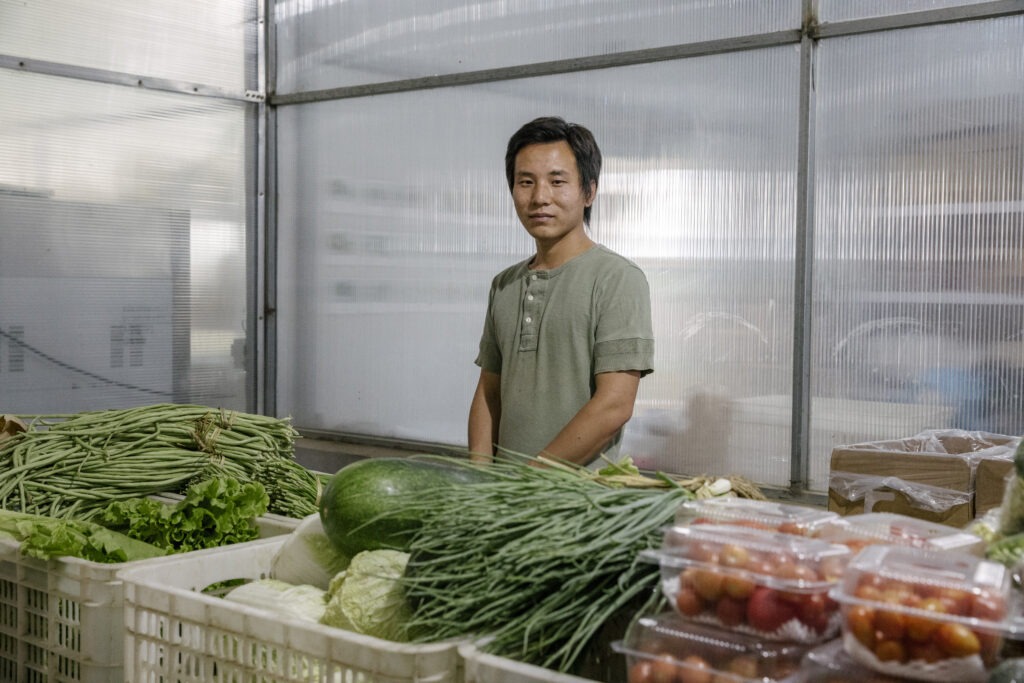
Chef Ni Guangxuan, 28, from Qinhuangdao, Hebei province/ Ian Teh for Panos Pictures/ Food and Land Use Coalition Overview:
Former chef and farm owner Ni Guangxuan joined Shared Harvest’s trainee program to learn more about organic food:
“I did everything myself on my farm. Here everyone has their own job, there’s a clear division of labour.”
In the future, he hopes to run a similar initiative and supply local restaurants with safe and healthy produce.
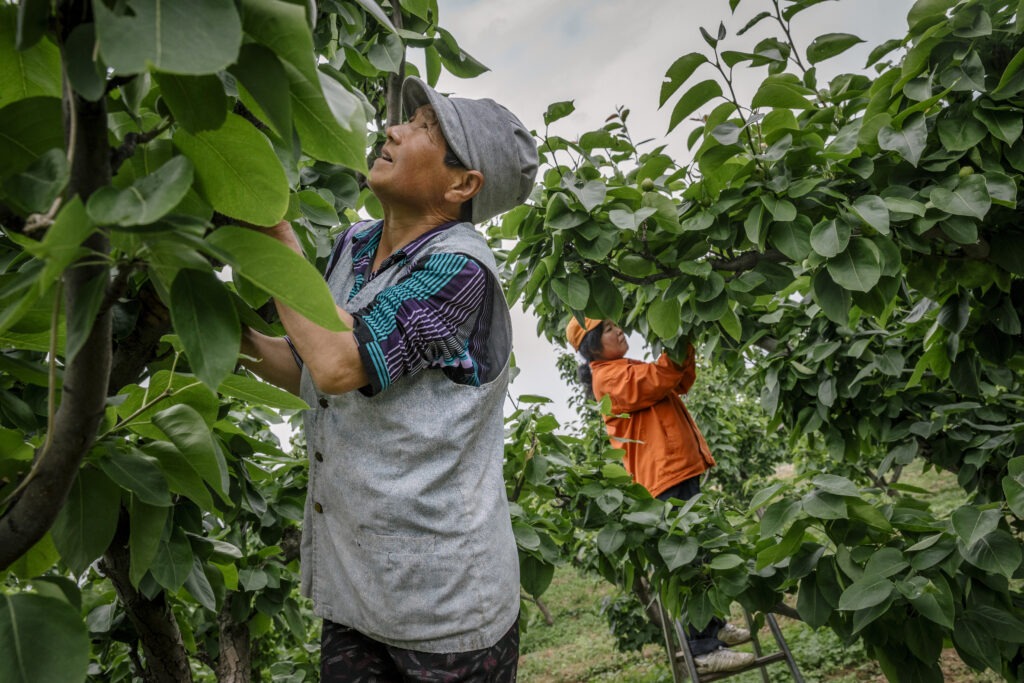
Farmers pruning leaves from pear trees at Shared Harvest Farm/ Ian Teh for Panos Pictures/ Food and Land Use Coalition Overview.
Guangxuan’s story is at the heart of Shared Harvest’s philosophy, where education starts on the ground. Through farm visits and public lectures, Yan and her team share sustainable farming practices, promote healthy diets and build trust between producers and consumers across China.
Tsinghua University works closely with the farm as a food safety research centre resource for students and is also a partner of the Food and Land Use Coalition (FOLU) in China.
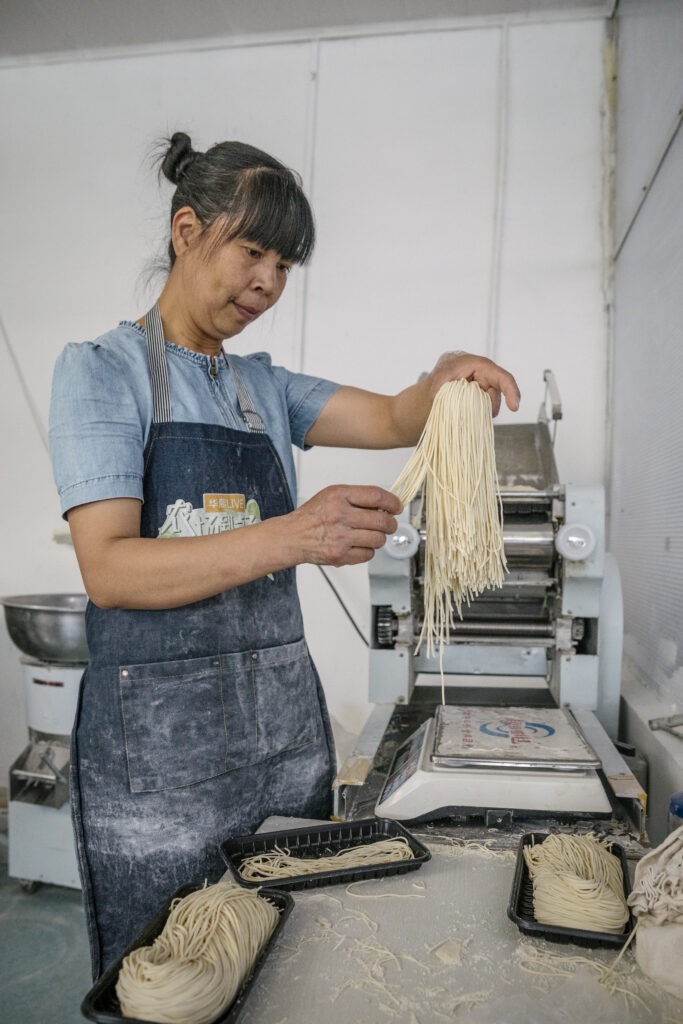
Zhu Jinlan, from Fujian province, in the noodle workshop at Shared Harvest/ Ian Teh for Panos Pictures/ Food and Land Use Coalition Overview:
There is a different story as you turn every corner on the farm. Zhu Jinlan used to run a shop selling noodles, buns, and pancakes in Beijing. She joined Shared Harvest in 2018, to follow in the footsteps of her son’s family and now holds a noodle workshop on the farm.
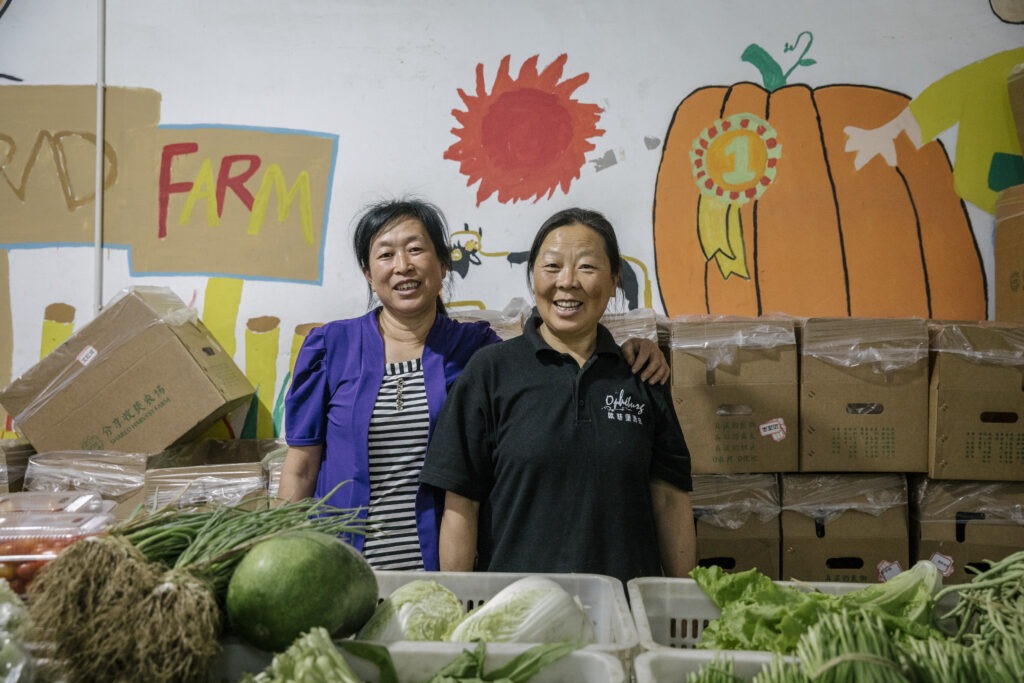
Han Shuhua (left), Zhu Shujun (right) in the packaging room at Shared Harvest/ Ian Teh for Panos Pictures/ Food and Land Use Coalition
Meanwhile, Han Shuhua and Zhu Shujun run the packaging room at the farm. Friday is the busiest day of the week for them, with double the usual number of orders from markets and restaurants around the region. One of their main customers is the bustling Beijing Farmers’ Market which sells the farm’s fresh produce such as carrots, lettuce, and organic noodles.
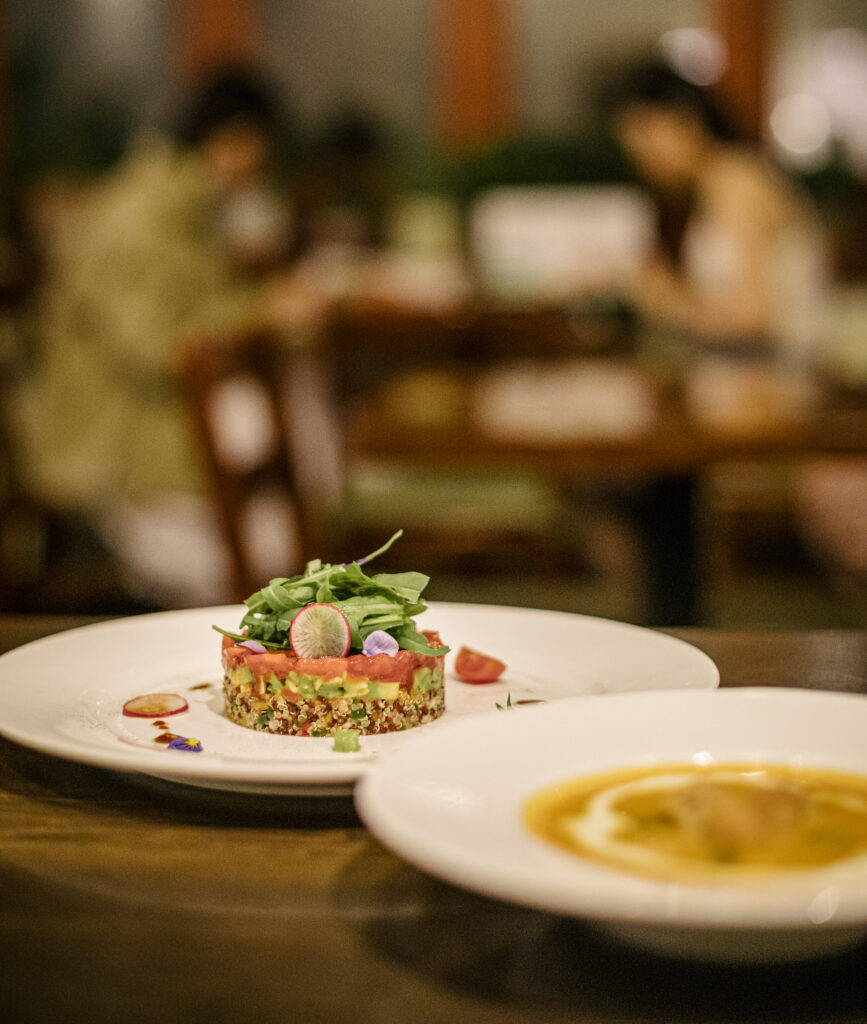
Veggie Table, a restaurant in center Beijing/ Ian Teh for Panos Pictures/ Food and Land Use Coalition
Finally, taking the harvest truly to the table, Yan’s farm supplies fresh produce to Veggie Table, a restaurant in the centre of Beijing, famous with city dwellers and travellers for its high-quality plant-based cuisine.
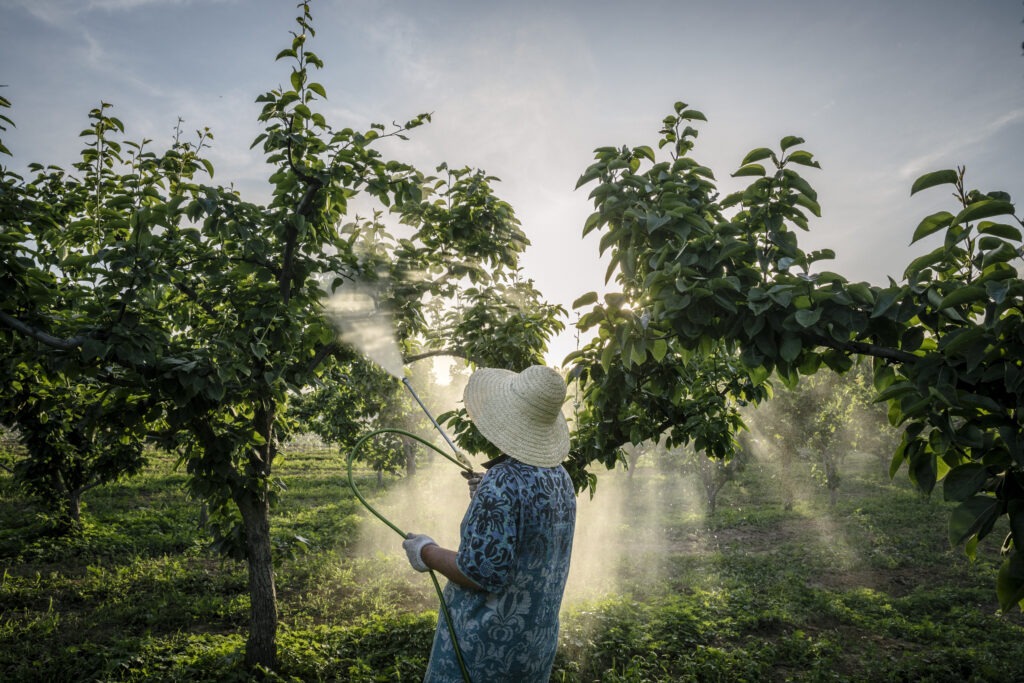
Farmer watering pear trees at Shared Harvest/ Ian Teh for Panos Pictures/ Food and Land Use Coalition
Visit the FOLU China page to learn more about the partners working to support sustainable food and land use transformation across the country.
Discover more stories from China here.


